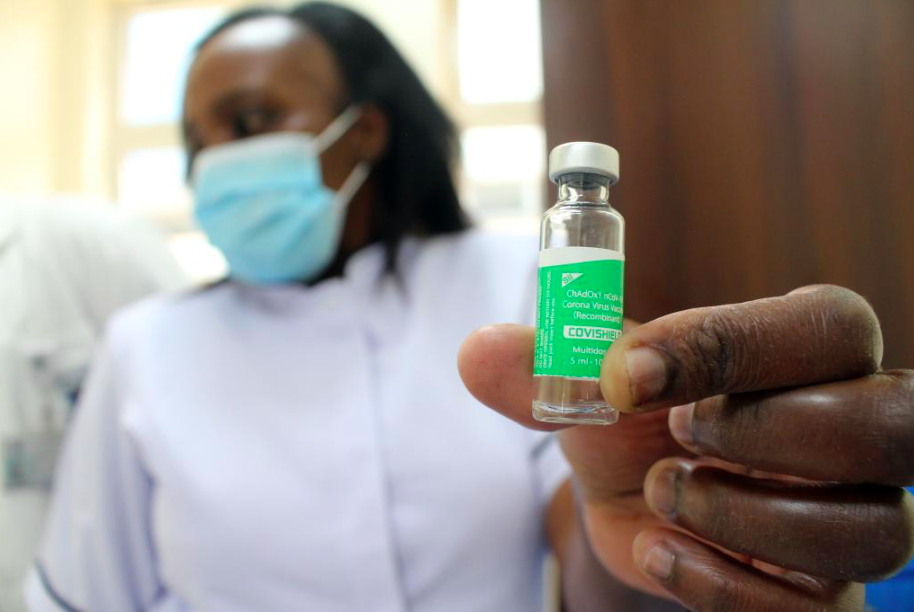The agreement
follows years of negotiations sparked by the devastating impact of Covid-19, where rich nations bought and hoarded nearly all available vaccine
doses.
Kenya was among the 124 nations that on Tuesday voted
to adopt the main text of a legally
binding World Health Organization (WHO) Pandemic Agreement aimed at preventing,
preparing for, and responding to future pandemics.
The agreement
follows years of negotiations sparked by the devastating impact of Covid-19, where rich nations bought and hoarded nearly all available vaccine
doses.
The treaty introduces the Pathogen Access and
Benefit-Sharing (PABS) system to guarantee that countries contributing virus
samples also receive fair access to resulting medical products.
Kenya, which
was part of the original group of countries calling for the treaty in 2021, said it is committed to the treaty. “This agreement will ensure that our children and their children are
better prepared for future public health emergencies,” Health CS Aden Duale said on Monday.
The treaty
will come into force after 60 countries ratify it. Below is a Q&A
explaining what the treaty says, how it works, and what it means for Kenya and
the rest of the world.
What exactly has been adopted?
Countries
around the world on Tuesday agreed to a new international
agreement (called the “WHO Pandemic Agreement” or “pandemic treaty”). This
is a global agreement to help prevent, prepare for, and respond better to
future pandemics. The treaty encourages all countries to work together by sharing
virus samples and data quickly; making sure vaccines, medicines, and tests are available to
everyone, not just rich countries.
It also seeks to strengthen local
health systems so they can handle future pandemics; and support
research and development for new medical tools. The goal is to avoid the
mistakes of Covid-19, where some countries were left behind.
Does Kenya support
the treaty?
Yes. President
Uhuru Kenyatta was among leaders who endorsed the idea of a pandemic treaty in
2021, and Kenya spoke for the African Region in negotiations.
On Monday, Health CS Aden Duale said in Geneva that
Kenya supports the final document.
What does the
treaty say?
The treaty is made
up of many parts. Here are the key ones:
1.
Fair access to vaccines and medicines: Countries must
work together to make and share vaccines, tests, and treatments. Rich countries
should support production in poorer ones.
2. Pathogen access
& benefit-sharing: The treaty creates a WHO Pathogen Access and Benefit-Sharing (PABS) System,
a multilateral framework for rapid sharing of virus samples/sequences and, on
an equal footing, the timely sharing of benefits (monetary or non-monetary)
arising from their use.
3.
Stockpile sharing: Countries must agree not to hoard medical
supplies and should set aside a portion to help others.
4.
Public involvement: Communities, civil society, and local
leaders should be part of decision-making.
Does the treaty
commit pharmaceutical companies to share vaccines or drugs formulas during pandemics?
No, the treaty does not directly commit pharmaceutical companies to share
vaccine formulas. However, it encourages and enables governments to facilitate
such sharing, especially with developing countries.
Article 11 (Access
to Technology and Know-How) calls on countries to encourage holders of patents,
trade secrets, and know-how (which includes pharmaceutical companies) to
voluntarily share that information, particularly for public health purposes
during a pandemic.
The text recognises the importance of protecting intellectual property rights, but
balances that with public health objectives, mostly through voluntary cooperation and government-led incentives.
What has Kenya said
about the treaty?
In Kenya’s national statement at the WHO Assembly, Health CS Aden Duale said: “Kenya calls for the rapid adoption of this
treaty and the swift but precise completion of the drafting of the Pathogen
Access and Benefit Sharing (PABS) annex that will see developing countries
benefit from technology transfer and sharing of know-how.”
Health CS Aden Duale represented Kenya at the World Health Assembly this week.
What is the
Pathogen Access and Benefit-Sharing system (PABS)?
PABS is the most contentious part of the treaty. PABS obligates countries to quickly
share virus samples (and sequence data) with global repositories, and in return
ensures fair allocation of the rewards (including vaccines, diagnostics,
treatments, technology, or funds) that come from using those samples. However, PABS text is not yet fully developed due to disagreements
between countries, particularly regarding equity in benefit-sharing.
Some rich countries
fear it will limit their control over the distribution of
health products. There’s working group which is supposed to conclude talks by next year’s World Health Assembly (May 2026).
Will the treaty be
legally binding?
Yes, but only
for countries that choose to sign and ratify it. Although 124 countries voted to adopt the agreement, each country
must still approve it through its own legal
process. Once 60 countries approve, the treaty will officially start. Countries
that do not sign will not be bound by it. However, the full treaty is not yet open for signature and won’t be
until the PABS issue is resolved. So countries can only sign and approve the
full treaty from May 2026.
How
will the WHO or the Conference of the Parties (COP) ensure countries adhere to the treaty?
The treaty does not give WHO or the COP power to punish countries that don’t
follow the rules. Instead, they will use other methods to encourage compliance.
For instance, countries will have to report on what they are doing to meet the
treaty goals. The COP will review these reports and offer advice or support if
needed.
Also, WHO will help countries by giving training, information, and
technical assistance.
The idea is
to build trust and cooperation, not to punish countries. This means that while
there are expectations, it relies more on partnership and peer pressure than
legal enforcement.
Why is the US not
part of the treaty?
The US was a major player in the negotiations until recently. The country dropped out after President Donald Trump announced in January that his
administration would withdraw the country from WHO.


